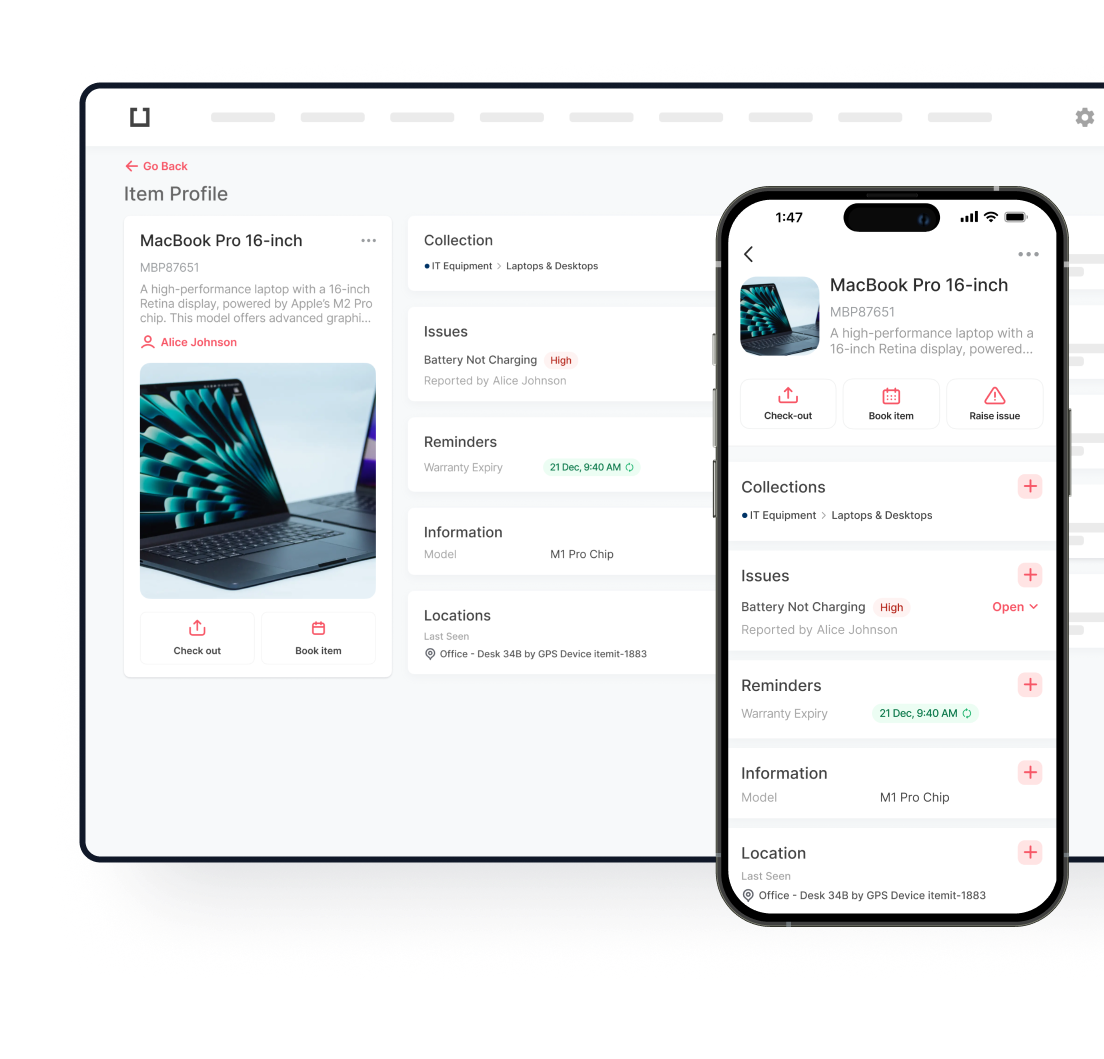Construction, electrical, plumbing, automotive or manufacturing, you name it. All these industries are heavily reliant on a large number of tools and equipment. Not only that, almost every medium-to-large scale establishment has a department that operates with a lot of tools for its day-to-day operations.
If your work involves using different tools, you’d already have your reasons for getting a tools tracking system. But if you’re an executive member who isn’t involved with tool-intensive work or you just need some convincing about getting tools tracking software for your organisation, this 4-minute read is for you.
What Does a Tools Tracking System Do?
itemit’s tool tracking system allows you to track your tools in real-time. From smaller hand tools like hammers and spanners to large units like cement mixers and wheelbarrows, you can track them all from one cloud-based platform.
With itemit, you can see what tools you have, who has them and where they are, and every other important detail so you never lose a piece of equipment again. It also gives you valuable insight on tool utilisation trends so you can make the most out of your tools and make well-informed tool purchases.
Why Should You Get a Tools Tracking System?
Everything from a small tool like a screwdriver to a more important piece of machinery like a large drill machine forms the backbone of your company. To keep your business running smoothly, it’s imperative to ensure all its nuts and bolts are kept track of, in place and tightened!
In a tool-intensive industry like construction or automobile repair, tracking your tools should be a huge concern. Simply because you incur huge losses in time, productivity and money in the absence of a robust tool tracking system.
The slightest deviations from the work plan, for instance, time lost in recovering a lost tool, can cause huge delays in project completion. Because this is not just half an hour lost on finding one screwdriver. This is an aggregate of multiple days lost on finding different tools misplaced by different employees every day!
On top of that, when you keep losing track of your tools, the delay also increases the cost of project completion. There are irregularities in tool data when you don’t have a tools tracking system, and this, in turn, leads you to make incorrect decisions about your company’s capability. You cannot provide accurate time and cost estimates. Time loss coupled with incorrect estimates results in the actual project completion cost being much more than what you initially anticipated.
All in all, not tracking your tools leads you to faulty decision making, incompetent planning, and ultimately, the inability to fulfil commitments. But this is just the tip of the iceberg. There are many more ways how tools tracking software helps your business.
Enables You to Manage Tools and Equipment Properly
When you’ve got dozens, if not hundreds, of tools being used by employees, making sure that each piece of equipment is maintained and is working properly can feel like a gigantic task. And it is as important as it is difficult. As a services company, you don’t want your heavy equipment breaking down at the wrong time, resulting in huge productivity and financial losses.
Undoubtedly, tools go through wear and tear when they’re used and will not always stay in mint condition. It’s especially essential to keep an eye out for the most important equipment and make sure they’re working properly.
With a tool tracking system, any employee can report issues with equipment so the responsible person can take care of its maintenance in time. This increases productivity and maximises your tools’ life cycle so you can get the most out of them.
Increases Productivity by Streamlining Operations
Tools tracking makes work much easier and more efficient, this is especially true if your employees have rotating shift hours. For instance, medical workers or builders rotating shifts find it very hard to find essential equipment where it was left off by a previous shift worker. This leads to unnecessary hassle for the employees just beginning to start their shift, and a loss of precious time and energy. Tool tracking can help streamline this process by allowing employees to pick up essential tools and get to work right away.
That is not all. Tool tracking software enables you to track tool utilisation and identify equipment-related problems that are slowing down the work. This way you can address a shortage in your tools inventory timely and keep operations running at full capacity. Brilliant.
Provides an Immediate Boost to Your Management Skills
No matter how proficient you may be at what you do, no matter how skilled your employees are, poor management leads to poor performance. If you have your tools and equipment disorganised all over your workplace and project site, and if you’re not using a state-of-the-art tool tracking system to track them, you’re losing out on a lot!
itemit’s tool tracking software can instantly boost your management skills and help you get everything on record and tracked. This means you stop losing tools every now and then and you are aware of the tools you have. Most of all, the heavy burden of keeping track of company tools can be shared by all employees as everyone can access and record tool details through the itemit app.
Bottom Line
itemit’s tool tracking software allows you to carry out all of the tool tracking functions mentioned above and much more including the ability to book tools, check tool bookings, and equipment check-in and checkouts.
Using our tool tracking software is super easy, and you can learn how to track your tools in just a few minutes. To find out more about how itemit’s tool tracking software can help your business, you can contact the team at team@itemit.com. You can also fill in the form below to start your 14-day free trial.

Try itemit
Choose a better way to track
your assets.
Start your free 14-day trial now!

Keep Learning
itemit Blog
Tips, guides, industry best practices, and news.
Tips For Boosting Security With Asset Tracking Software
Wish to boost security but not sure how? Read this post to find out office equipment management and asset tracking software can help!
How Tracking Tools Can Keep Track of Software Licences
Wish to track your software licences but you’re not sure how? Read this post now to find out how asset tracking tools can help!
A Short Guide To Switching To IT Management Software
Wish to make the switch to IT management software so you can use an IT asset register every day? Read this short guide to find out how easy it is!

